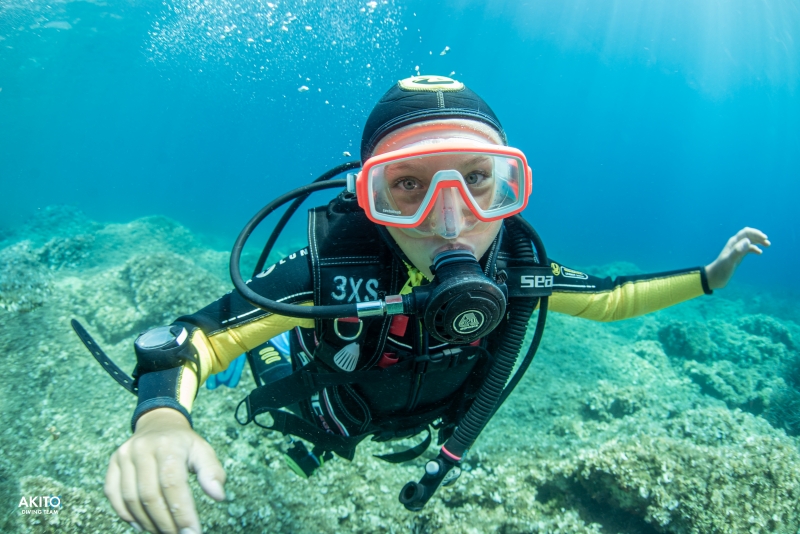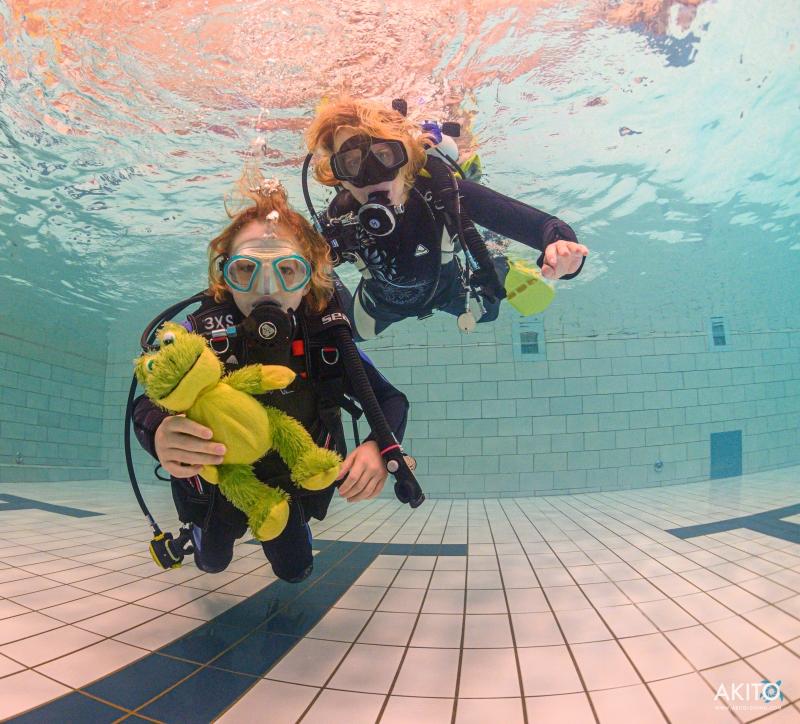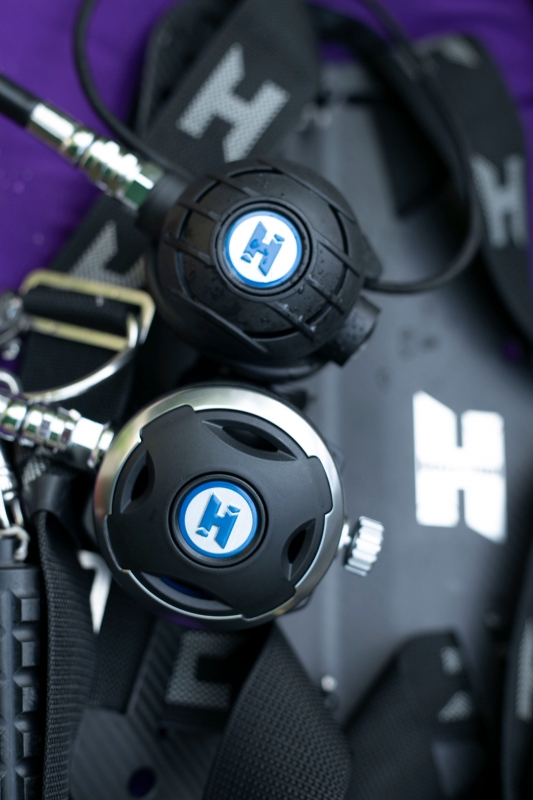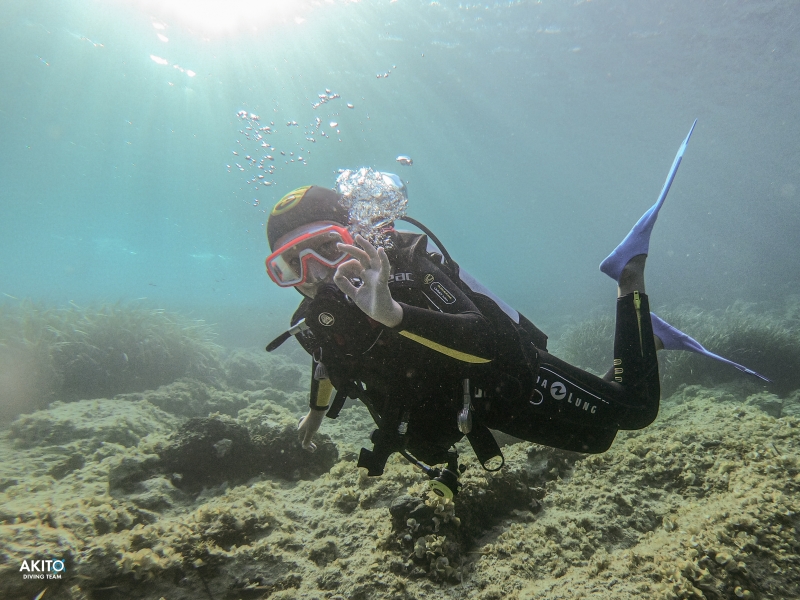DIVING WITH CHILDREN – A GOOD IDEA, BUT…
Naturally, parents like to share hobbies and experiences with their children. In present time, there is specialized training programs and diving equipment made specifically for kids. It does not matter if you are a parent/diver or a diving instructor, the following tips and advice for diving with children can be helpful when approaching the topic.
WHEN TO START?
While many dive training organizations allow children to become certified scuba divers at the age of 10, this does not mean every child should start diving at the crack of dawn on their 10th birthday… Sometimes a child may not be able to properly focus and assess situations underwater. Thus, you should think of the aspiring diver not only in regards to their age, but keep their mental readiness in mind as well. It’s important for parents not to rush or push their diving standards on children too quickly. It is equally important for an experienced instructor to provide time, presence and information sharing to allow parents to feel more comfortable selecting and proceeding with a dive training program. If a child does not posses the mental readiness for scuba diving training, swimming and snorkeling experiences are great avenues to gain comfort and skill in the underwater world.
LET THE EXPERTS DO THEIR WORK
If a parent/child opts to proceed in dive training, the children’s diving course should be lead by an experienced instructor, who needs to have a good understanding of children and how to work with them. He/she should know how to advise parents about the inherent risks that come with scuba diving. A parent can often be too strict or too protective, which can affect the child in their own worries or stress. I personally have experienced multiple situations when a child could not focus on diving, or was stressed out by the parent, despite numerous warnings. I have grown fond of using a particular agreement, especially with the child diver which is a family dive at the end of the course. This allows children to go through a training program with a parent either not present or present at a distance and experience a dive together once the class is complete. Parents are often impressed with the end result of this approach when they witness their child grow, learn and become a self-sufficient diver and buddy to others.
APPROPRIATE EQUIPMENT
Children are still growing, some at a rate of nearly 15 cm per year. Diving equipment is heavy, so make sure to keep their spine, joints and overall growth apparatus from being overburdened. Help carry their equipment to the water and assist with putting it on and taking it off. Encouraging good teamwork and assistance to others often makes this component palatable for children. You can carry their tanks, maybe they can carry your fins.
Children can also get cold very quickly in the water. Sometimes, they will shiver but do not want to get out of the water. A sudden reaction to a cold environment can even make a child panic. So, how can we avoid this? Have them put on multiple layers, watch them during the dive and adjust time spent underwater based on current temperature status.
If the child requires glasses, make sure to use an appropriately-sized dioptric mask. Many dive centers have these on-hand or can easily order them prior to in-water work.
Provide equipment and a tank of appropriate size to child divers. An adjusted adult-sized compensator, ill-fitting or tight fins, bad mouthpiece can cause great discomfort for anyone. Ensure the equipment is sized appropriate to the diver.
One of the most important details in equipment is the appropriately-sized mouthpiece for a child, both for the regulator as well as the kids snorkel.
EVEN CHILDREN CAN HAVE HEALTH ISSUES
Many people consider children healthy. Do you think children can not have symptoms of DCS (decompression sickness)? That they can not have an open PFO (patent foramen ovale)? Quite the opposite! Even if complying to all the standards and recommendations, children can exhibit DCS symptoms after the dive. Children are not small adults. The way they breathe, the anatomy of a child’s respiratory and circulatory system, the effect of pressure on ORL and tissues in children, the developing nervous system, that and more differentiates them from adults and should be taken into consideration when diving with children. Keep it in mind and be mindful and aware of any issues, be it before, during or after the dive.
IT SHOULD BE FUN!
Just as they remember their first school teacher, your kids will remember their first diving instructor. The instructor should not only teach them how to dive safely and properly, but also to respect and care for nature. Be emphatic. Children should not dive when stressed. They always must know what, where, how and when is about to happen. They are more sensitive and vulnerable, with their own problems, doubts and fears. They must not be afraid to say that they are not feeling okay. Even if it would mean that the dive will be cancelled. Sometimes all it takes is listening to them and trying to understand. Always, without exception, accept it if they do not want to go underwater! Listen and think about what the issue might be. Perhaps it could be a poorly understood mention of an underwater danger that they overheard someone else talking about, or maybe they just secretly watched the last part of Sharktopus, or just did not sleep well enough.
LAST BUT NOT LEAST – IT SHOULD BE THEIR DECISION
Do not force them, just because you think it is a fun family activity. “If I had the opportunity at his/her age” or “You will be the coolest boy/girl in class”, are not also reasons for diving. We are both diving instructors and our children only dive with us if and when they want to. They have their own hobbies and diving is simply an occasion to have some fun in the summer here and there, not a lifestyle as it is in our case.
Diving is a wondorous sport. Nowhere in nature can you get as close to wildlife as you can underwater. Either way, the decision of whether it is the right time to take a diving course should be carefully considered by parents, instructors and children. I wish you many beautiful diving adventures with your younglings!
For the language correction thank you Halcyon. The whole article you can find also on https://www.halcyon.net/diving-with-children-a-good-idea-but,1683,en
